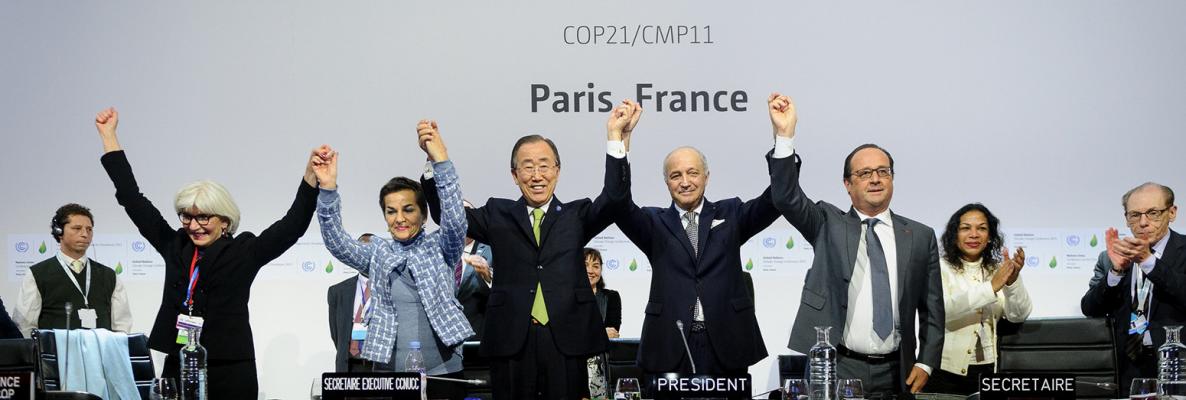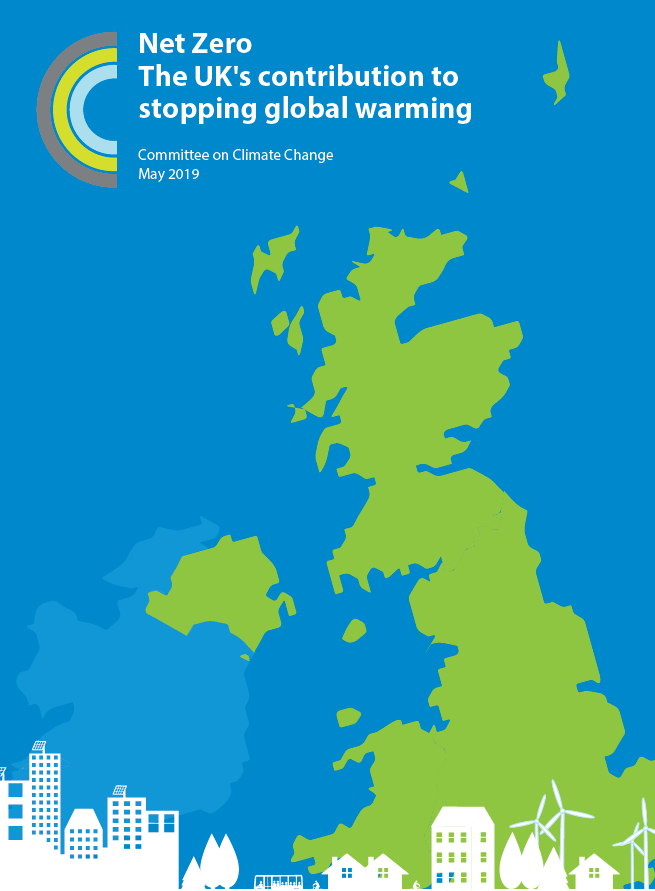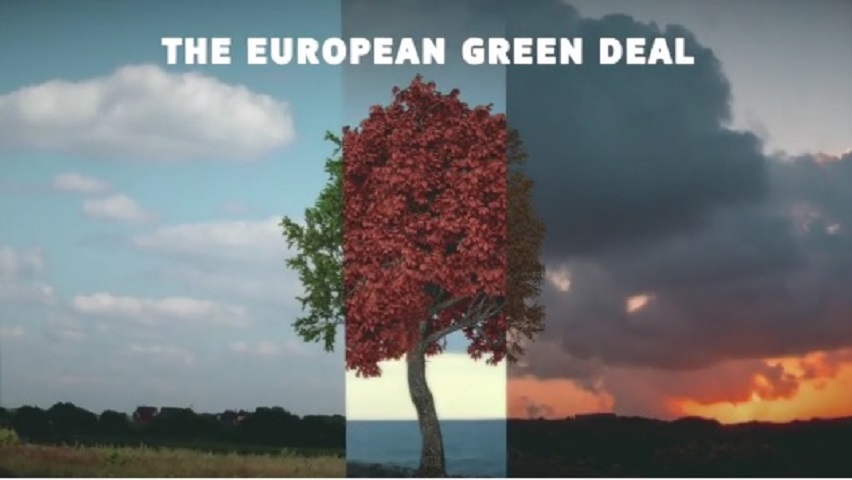The Paris Agreement on Climate change aims to keep a global temperature rise below 2°C above pre-industrial levels.

The Agreement additionally claims efforts to limit the temperature increase even further, to 1.5°C (Article 2 of the Agreement). The Paris Agreement have been signed by most of the countries of the world, with very few exceptions.
Article 4 of the Agreement encourages Parties to reach global peaking of greenhouse gas emissions (GHGs) as soon as possible. Furthermore, parties must prepare, communicate and maintain nationally determined contribution (NDC), pursuing domestic measures to achieve them.

According to IPCC experts, the world will need to reach net-zero emissions by 2050 in order to meet the 1.5°C rise temperature goal.
The less ambitious goal (2°C) requires reaching net zero emissions by 2070.
IPCC dedicated also a Special Report about how the world could achieve the 1.5˚C goal.
Most of Paris Agreement Parties have developed NDC plans. Some countries went ahead, with programs on how to reach net zero emissions either by 2050 or 2070.
The European “Green Deal”
Particularly, the European Union aims to be climate-neutral by 2050. The EU commission launched a 2050 long-term strategy.
The basis of the EU climate strategy is the “European Green Deal“, which involves investing one trillion euros in public and private funds.
The EU commission expects Europe to become the first world’s carbon-neutral continent by 2050.
The EU Green Deal comprises a roadmap with several key actions, aimed to achieve net zero emissions by 2050 in all the EU member states. These actions involve reviewing and updating several EU Directives and regulations. Member states must develop new national energy and industrial plans. Besides, the actions comprise “smart mobility”, “greening” the Common Agricultural Policy and several other environmental actions.
The British strategy on net zero emissions
The United Kingdom became in 2019 the first major economy in the world to pass laws to achieve net zero emissions by 2050.
The British government’s advisory body on Climate Change is the Committee on Climate Change (CCC). It is an independent, statutory body created by the UK’s Climate Change Act 2008. The CCC comprises scientists, engineers, economists, business people, etc.
The CCC experts must support British policy makers regarding climate change. It makes periodical reports to British parliament. The CCC also provides specific reports and analyses.
British CCC recently published an excellent and exhaustive report about the current stage of national GHG emissions. The report assesses whether the country might meet the net zero emissions target by 2050.
Surprisingly, the CCC website is no longer available, but we have uploaded their report, which is available here
According to the report, the UK could achieve the net zero emissions target by 2050. However, this would only be possible if clear, stable and well-designed policies to reduce emissions further are introduced across the economy without delay.

The CCC report: net zero emissions by 2050
The CCC points out that current policy is insufficient. Besides the advisory report to politicians, the CCC provided a technical report, outlining its conclusions by each economical sector. The report considers GHG emissions from power generation, buildings, industry, transport and agriculture.

According to this technical report, GHG emissions due to heating buildings might be difficult to reduce unless conducting a significant investment.
They estimate that direct GHG emissions from buildings, mostly due to heating, were 85 MtCO2. This accounts for 17% of total UK emissions.
Although there is low-carbon technology available for heating, it is costly. There is a huge gap between the funds foreseen in the government’s budget to modernize the heating of buildings and the actual needs all across the UK.
Furthermore, the report finds difficulties in reducing GHG emissions from agriculture. It also finds problems in increasing carbon captures from changing agricultural land to forest. The results are far from the original projections.
Regarding power generation, industry and transport (flights and roads), the report is confident about achieving net zero emissions by 2050. However, it indicates actions to be urgently undertaken in this regard.
Despite the spirit of the Paris Agreement, few countries have developed plans on how to achieve net zero emissions by 2050. The British CCC report is an excellent guideline about what can be done and where the priorities are.



